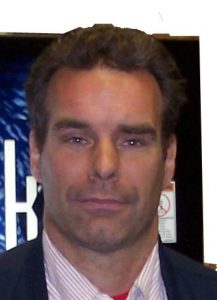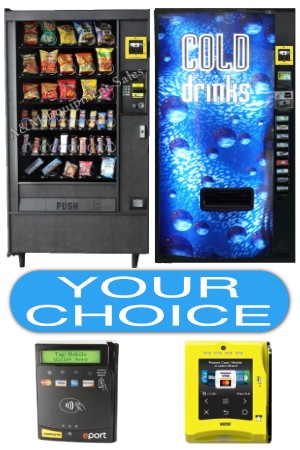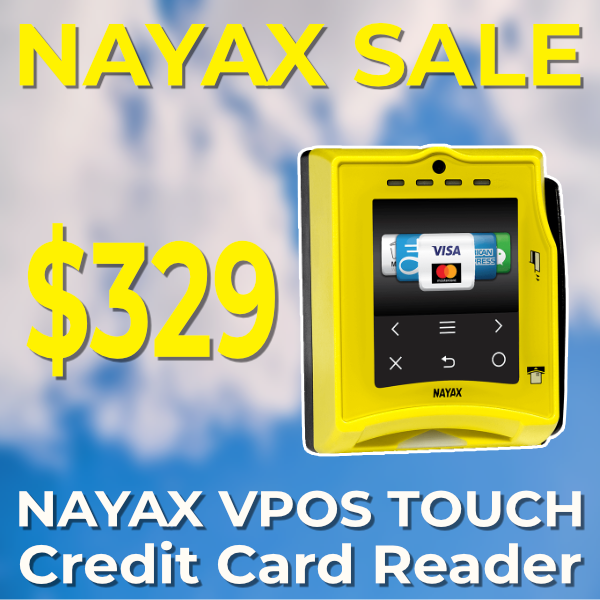Placing vending Machines An interview with Larry Towner, vending  business consultant.
business consultant.
Placing Vending Machines Larry reveals numerous tips for identifying a good vending account. Listen in as Larry describes:
- Identify what type of accounts you want to be in
- The sales plan to land new accounts
- Referrals are the life-blood of your business, so know and take care of the key people in each of your accounts
- Minimize windshield time by focusing on a specific geographic area for your operations
- Just because you have a location doesn’t mean you should have a vending machine there
- It’s a numbers game that is focused on ROI, otherwise you lose
- Call on friendly competitors to share leads in the areas where you do not focus
EPISODE TRANSCRIPT:
Placing Vending Machines Tom Shivers: I’m Tom Shivers with the Vending Business Show, here with Larry Towner who has been is the vending business for many years. Before we get going to far I just wanna point people over to the blog where you can see more podcast and the Vending Business Show, it’s amequipmentsales.com/blog.
Tom Shivers: Larry has been in the vending business for many years and he sold the majority share of his vending business a few years ago, today he provides consulting. And last time, well be fore we get going there, Larry thanks for being here.
Larry Towner: I appreciate it Tom.
Tom Shivers: We talked about the vending business, whether it’s a reliable venture or not and got into a few questions like what’s the history of the vending industry and you’re pointing out it’s a numbers game and we also got into the question of how would you know you’ve got a good location for a vending machine and you gave a lot of good tips on identifying a good vending account. What are some other good tips for finding a good vending account or a good location?
Larry Towner Placing Vending Machines : Well good vending accounts are, I wanna like, any business. It’s really more or less a sales and marketing effort. In the vending business you have two different areas that you do sales and marketing. One is the end consumer which is the person that actually purchases the product that you actually get your income from.
Larry Towner: But before that you have to actually do what’s called place the machines and in the process of placing the machines you have to create a marketing plan, we’ve already talked about doing a business plan. But there’s a marketing plan that goes along with that and that is what type of accounts do you wanna be in. And when I say that is, pick up an account that you have an idea of what it is that you wanna be. Do you wanna be in the amusement park because, do you wanna be in the apartment business, do you wanna be in the commercial business where you’re in people’s offices or their plants, do you wanna be doing street vending? There’s a very large number of types of accounts that you can get.
Larry Towner: So the first thing you do is you kinda decided where you wanna be and what you think you’ll be successful at. And then you go out and you start a sales process on getting these accounts. And a sales process is as simple a walking into an establishment or walking into your potential prospect of where you wanna place your machines and basically asking a few questions.
Larry Towner: I’m big in my sales processes to ask a lot of questions about what they have now and are they happy with it and how is their pricing. And I do things like I look at their machines, I wanna see what they have and sort of products they’re running and things like that. So that’s the beginnings of an actual sales process and we’ll talk about sales and marketing through this whole series of blogs or podcasts, I guess, that we’re gonna do because sale and marketing is the crux of all business really at this point.
Larry Towner: And you have to learn, if you’re not comfortable selling, you have to learn how to sell a little bit. Now that doesn’t mean that you go out and you become a professional salesman, what it means is if you just get comfortable with some of the basic sales steps that it take to get business.
Larry Towner: One of the big things I would say is consistency. And one tip that I tell a lot of people that aren’t sales people in general, is look, you don’t have to go talk to 25, 30 people in a day. A true professional salesman needs to talk, in the neighborhood, needs to talk in person to 10 people and he needs to talk on the phone anywhere from 50 to a 100. So you don’t need to do that necessarily. You might do that in your initial stages of your business, but I always say once you get yourself up and running and you’ve got yourself a few accounts, if you can do as little as stopping and seeing one or two people when you’re starting in a day, and as you get busier and busier it’s more like one or two people in a week and sometimes even one or two people in a month.
Larry Towner: At the end of my run in my vending business I would spend about three whole days a year selling, that’s all I needed to get me enough business to replace whatever I had lost or what had gone out of business or what had just needed replacing in a year. So at the end of my full-time vending career, I guess I wanna say, I’d sell three days a year, which is pretty nice actually.
Tom Shivers: Yeah, that sounds very convenient and I assume if you’re doing a good job you may have some residual from referrals.
Larry Towner: Referrals become a huge portion of marketing effort. What happens is, a lot of what happens is, is you’ll get key people in your accounts and the key people are, they’re just your end consumers and as long as you take care of them, you’re there and you’re talking to somebody in the break room and they ask you for something and you take care of them and you get them the product that they want or I give them a refund because they one that was bad or whatever, any of the number of things that encompass taking care of your customers and they remember you.
Larry Towner: Well they switch jobs, and they go from ABC company to XYZ company, and they get in there and the vendor that’s there isn’t doing as great a job, and they remember you or they call somebody in their former company to get your phone number, and you’ll get a huge amount of business that as long as you take care of your customers. And so it’s that, it’s also that business owners talk. Gee, I’ve got this vending guy, he’s just not doing it. Well geez, my guy does a good job, same thing, here’s his number.
Larry Towner: Really I also got more business from my end users. They would go from place to place and they would drag me in with them. Especially mid level managers, in general, the people that you deal with a lot, they’ll take you with them. Even end users, we do a lot of stuff with truck drivers and truck drivers are job jumpers and we would end up with going from this trucking company to that trucking company, to this one to that one and it all would be one or two people and they’d just be moving around and taking us with them and then we’d go in and give great service and we wouldn’t lose anything. So referrals do play. They’re really the life blood of your business.
Tom Shimmers: Yeah. It sounds like as long as you’re providing great service and you’re getting along with the mangers there, you’re gonna get referred by other … You’re gonna get referred out.
Larry Towner: Yeah, if you’re doing it right you will get referred out. There really is no doubt about it and it’s not all that difficult to do really well, we’ll go into that on a another show sometime, just some tips and tricks on the actually operate in a vending account pre say, what od you do when you actually show up, actually what do you do when you get there.
Larry Towner: We spent, I don’t know, 20 years figuring it out and basically we took all of the tips that we had learned from every vendor we had ever come in contact with which is a very large number of vendors and some from other countries and other states as well. So we tried to come up with a system that works really well and then we also list on the national [inaudible 00:07:37], but we’ll talk about that ina future show, that’s a whole show in and of itself.
Tom Shimmers: Okay. Well yeah, getting back to the good location for a vending machine, I know you were going over some of the things to avoid and the things you oughta be looking for that gives you a good indication. I imagine you have to say no a certain amount of times to stores or places or locations who really wanna a vending machine there but just aren’t a good fit.
Larry Towner: Yeah. It happens relatively often. There’s a large number of factors that go into choosing a vending company. Much of it goes back to your initial planning. We set ourselves up in kind, I’m gonna say geographical areas, we didn’t wanna operate outside of a specific radius from our main base of operation because for driving reasons, windshield time is unproductive time. And so our job really … Your most productive time is when you’re actually there filling machines, taking care of customers and selling product basically which is what filling machines is actually all about.
Larry Towner: So we always worked in a geographical basis. And probably our biggest reason for turning down businesses, we’ll get referrals from places that are outside of where we deem our area of operation. If it’s a single account that’s way across town and unless it’s extremely large it just doesn’t pay to go do a small account or even a medium size account if you have to spend 45 or 50 minutes in the vehicle because the other side of it is that you will have service calls and so it’s 45 minutes out and 45 minutes back just to unjam a coin or unjam a dollar bill.
Larry Towner: So that would be the biggest reason why we say no. The other ting that does come in is everybody thinks that just because they have a location that they can get a vending machine. And this is kinda something that a lot of the … Well a lot of vendors have done it to themselves. We’ve done it to ourselves in the vending business. Not everybody can justify having vending in their locations. And it has been, in the past, very much the case that if you got a phone call, somebody would take the account.
Larry Towner: Fortunately, I guess, in this tough economy, that is starting to be less and less and in fact even Coca Cola and Pepsi won’t place machines everywhere like they used to anymore. And when the big boys won’t do it it means that the small guys should be paying attention and should be understanding why not to do it.
Larry Towner: And basically it comes down to return on investment or gross sales or however you wanna look at it, you can’t just, if you have two people, you can’t place a machine there or if you have five people that won’t eat, you can’t place a machine there. You just won’t do enough business to justify your costs. It’s really not a magic formula, it’s just a numbers game and that’s what people don’t do. They go oh yeah, I put it in, I drive by there every day. Well you drive by there every day but if you go there every six weeks or every two months and you pull a 100 dollars out you’re really not paying to even have it there. You’re actually paying to have it there by the time you count your maintenance on it and your wear and tear on the equipment.
Larry Towner: So those are some of the things that you kinda have to avoid or reasons why you would turn down an account. Basically it’s not big enough, it’s outside your geographic area.
Larry Towner: Back on obtaining accounts. One of the things that I did is I had a lot, I called them friendly competitors. And what they are is they would be people that were in the vending company because I was primarily a small account vendor, had some mediums, and had a couple of big accounts, but primarily small account vendor, and what I got to do is I got to know some of the vendors that were around town that worked the other areas that I didn’t work because Atlanta is a rather large city and I basically broke it up into about four or five quadrants and I got to know a few guys that if I got an account, I was up on the north side, if I got an account call on the south side, I’d call up my buddy down there on the south side and say hey, I’ve got a lead for ya and it’s here, and I’d give them the description and who to talk to and all that sorta thing.
Larry Towner: And then they make the call [inaudible 00:12:03] but what ends what happening is if you do that with somebody and it’s somebody that you can trust, he will start sending you leads as well for the calls that he gets on the north side or however your city is laid out or however your area of operations are laid out. But that worked really well. It’s kinda like a referral, it’s basically a referral, but it’s another way to generate leads and plus you get to learn a little bit of the system if you get talking to somebody, how do they do business?
Larry Towner: And you learn what works for them, what doesn’t work for them. And then you’ll also find, in my case anyway, I always kinda had a thing that I knew the guys that I chose did business the way that I did business and so I very rarely, we rarely traded accounts, very very rarely did I ever take one of his or he takes one of mine.
Larry Towner: Usually if that were the case the customer was the determining factor not the other company. And I say that because a lot of people say you’re talking to competitors, that’s crazy, they’re gonna steal your accounts. And I’m like well, no not really because it’s out of the area of operation, they don’t wanna drive far. We would occasionally trade accounts right on the fringes but usually that was driven by the customer, not by the other company. Meaning, because they would be on our fringe of operation, our service level wasn’t quite where it could have been just because of the distance involved. So anyway.
Tom Shimmers: All right. Well Larry thanks for sharing. Tell us a little bit about your consulting business.
Larry Towner: Well we do consulting.
Larry Towner: We basically, if someone’s interested in getting in the vending business, I like to work with new vendors and what I like to do is make sure that they understand what they are getting into. We try to be pretty reasonably priced.
Larry Towner: We can do everything from operational to sales and marketing to product development, business plans, the whole thing. We can take you from start to finish, give you some ideas of what kind of equipment you need or what kind of equipment works and what’s cost effective, what’s not cost effective. We’re trying to help everybody make money is really what we do. And try to be as efficient as possible.
Larry Towner: You need to be really efficient in vending to be really profitable. And so it’s very helpful to have somebody that kinda knows the ropes and can give you the tricks and that’s what we do.
Tom Shimmers: And people can reach you at, what’s that email address?
Larry Towner: [email protected], one word.
Tom Shivers: Okay, great. And you’ve been listening toPlacing Vending Machines at the Vending Business Show, a publication of A&M Equipment Sales. More Vending Blogs New To The Vending Business?



